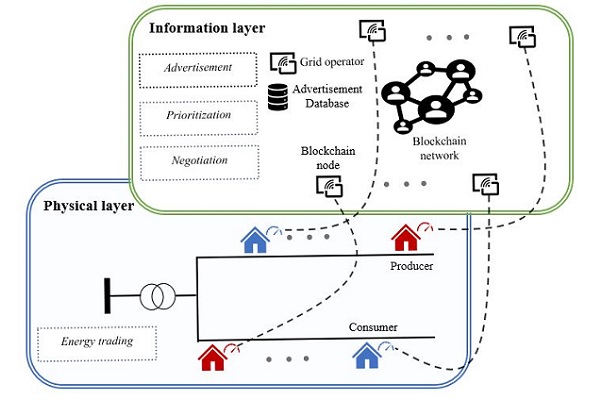Blockchain technology enable secure energy trading between neighbours
Researchers from Monash University and Queensland University of Technology have harnessed the power of blockchain technologies to transform the energy market.
Peer-to-peer (P2P) energy trading is a new approach for energy management in smart grids and facilitates the integrations of a large number of small-scale producers and consumers into the energy market.
ADVERTISEMENT
Blockchain technology gives users an opportunity for an improved market framework that is decentralised, trustworthy and anonymous.
It also lets energy producers and consumers directly negotiate and trade energy without the reliance on a trusted third party, enabling a transparent transaction and letting all involved save money.
Researchers are calling those that a blockchain-enabled P2P energy market rewards ‘energy neighbours’.
“What we’re proposing is a secure and privacy-preserving environment for decentralised energy trading between producers and consumers,” Monash Energy Institute research fellow from the Department of Electrical and Computer Systems Engineering Dr Mohsen Khorasa explains.
“We utilise a grid service charge, defined based on the electrical distance, to encourage participants to trade energy locally, thereby receiving the best price for their energy and reducing the overall power loss or possibility of overloading electricity grid lines.”
Both producers and consumers are encouraged to negotiate on energy trades locally with nearby agents to bring down the overall energy price. The electrical distance of agents is a key factor in calculating the grid service charges and makes it appealing to agents who trade with their neighbouring agents by receiving a competitive price.
Monash Energy Institute researcher from the Department of Electrical and Computer Systems Engineering Dr Reza Razzaghi says the approach also takes into account a reputation factor for each participant, based on past performances in delivering the committed energy quota.
“This ensures that prior to negotiations, participants are able to select their trading partners based on their preferences over the reputation and proximity of the trading partners,” he says.
To view the research paper, please visit this link.
-
ADVERTISEMENT
-
ADVERTISEMENT


